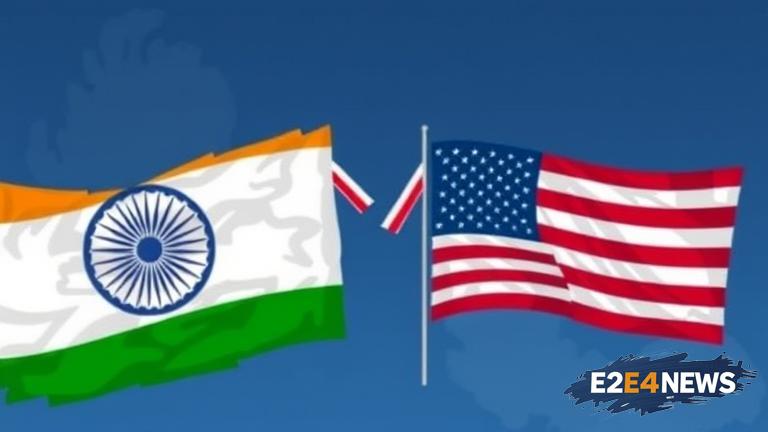The India-US trade deal has been in the works for several months now, with both countries trying to iron out their differences. One of the major sticking points in the negotiations has been the issue of genetically modified (GM) foods and dairy products. India has been adamant that it will not allow the import of GM foods and dairy products, citing concerns over their safety and impact on the environment. The US, on the other hand, has been pushing for India to open up its markets to American agricultural products, including GM foods and dairy. Despite the differences, both countries are keen to conclude a trade deal, which is expected to boost bilateral trade and investment. The Indian government has been under pressure from farmers and consumer groups to protect the domestic dairy industry, which is worth over $100 billion. The US has been seeking greater access to India’s dairy market, which is currently dominated by domestic players. However, India has made it clear that it will not compromise on the issue of GM foods and dairy products. The Indian government has also been concerned about the impact of GM foods on the country’s biodiversity and the potential risks to human health. The US has been trying to convince India to adopt a more nuanced approach to GM foods, but so far, India has refused to budge. The trade deal is expected to cover a range of areas, including agriculture, pharmaceuticals, and e-commerce. Both countries are keen to increase trade in these areas, but the issue of GM foods and dairy products remains a major hurdle. The Indian government has been working to promote the country’s dairy industry, which is seen as a key sector for economic growth and job creation. The industry is expected to grow significantly in the coming years, driven by increasing demand for dairy products. However, the entry of American dairy products could pose a threat to domestic players, who are already struggling to compete with cheaper imports. The Indian government has also been concerned about the impact of GM foods on the country’s food security, which is a major priority for the government. The government has been working to promote organic farming and reduce the use of chemical pesticides and fertilizers. The issue of GM foods and dairy products is not just a trade issue, but also a matter of national security and food sovereignty. The Indian government has made it clear that it will not compromise on these issues, even if it means delaying the trade deal. The US has been trying to build a coalition of like-minded countries to pressure India to open up its markets to GM foods and dairy products. However, India has received support from other countries, including China and the European Union, which have also expressed concerns about the safety of GM foods. The trade deal is expected to have significant implications for bilateral trade and investment between India and the US. Both countries are keen to increase trade in areas such as pharmaceuticals and e-commerce, but the issue of GM foods and dairy products remains a major hurdle. The Indian government has been working to promote the country’s pharmaceutical industry, which is seen as a key sector for economic growth and job creation. The industry is expected to grow significantly in the coming years, driven by increasing demand for generic medicines. However, the trade deal could pose a threat to domestic players, who are already struggling to compete with cheaper imports. The issue of GM foods and dairy products is just one of the many challenges facing the India-US trade deal. Both countries will need to work together to address these issues and conclude a deal that is mutually beneficial.
